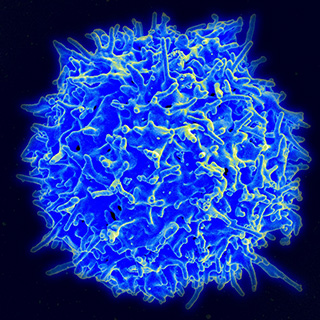Catalyzing Progress in Cancer Immunotherapy

Cancer immunotherapy is making headlines and generating excitement among biomedical researchers, clinicians, patients and their families, and research advocates. The Wall Street Journal featured an article highlighting the promise and potential of immunotherapy to transform cancer care.
For a number of patients with certain forms of cancer, immunotherapy is yielding seemingly magical responses. So what better place than Disney’s Contemporary Resort in Orlando for the American Association for Cancer Research (AACR) to host its 2014 special conference on this immensely promising, cutting-edge area of cancer research and treatment?
As with all significant clinical advances, the recent breakthroughs in cancer immunotherapy are result of decades of biomedical research that have provided us with deep scientific insight into the immune system and how it interacts with cancer cells.
The need for more research is, however, evident from the fact that cancer immunotherapies are currently available for only a few of the more than 200 types of cancer, and that only a small percentage of patients receiving them have the dramatic and long-lasting responses that have made headline news.

Before the AACR’s December 2014 special conference, “Tumor Immunology and Immunotherapy: A New Chapter,” Nina Bhardwaj, MD, PhD, director of immunotherapy and professor of medicine, hematology, and medical oncology at the Icahn School of Medicine at Mount Sinai in New York and co-chair of the meeting, shared her thoughts about some of the most exciting areas of research that were to be discussed at the meeting as well as what to watch for in the future. (For the perspective of a patient blogger on immunotherapy and the meeting in Orlando, check out “Tales from AACR’s immunotherapy conference” on Philly.com.)
A convergence of discoveries has propelled immunotherapy to the forefront of cancer research and treatment. For so many years, cancer therapy comprised chemotherapy and radiation therapy, and many people thought that the immune system would never be sufficiently well understood to be harnessed to treat cancer. However, we have learned so much about the contribution of the immune system to controlling cancer that we are at the point where using and/or manipulating the immune system is allowing us to cure some cancers.
The idea that this is a “New Chapter” in tumor immunology and immunotherapy comes from the fact that for the first time as immunologists, we have a solid armamentarium of ideas and agents that we can use to treat cancers. How we use this wealth of knowledge and the tremendous resources and technologies for individual patients is, for me, the next exciting and challenging frontier.
The meeting program is a nice mix of basic science and preclinical and clinical studies. In terms of the basic science, there will be a lot of mechanistic studies presented.
One exciting area we will learn a lot about is how the local tumor microenvironment becomes immunosuppressive, and what signals in the tumor microenvironment might tell us whether or not a tumor will be locally immunosuppressive. Other areas worth highlighting are the microbiome and immunometabolism, which is the study of how metabolic pathways modulate the immune system and its response to tumors. We will hear presentations from a number of researchers about how the microbiota in the gut can influence not only local cancers but also the response to distal tumors. For example, changing the microbiota in the gut can change the immune response to a tumor in the skin.
Combining different immunotherapy strategies is one of the most exciting areas of clinical research, and we will hear a lot about this at the meeting. But we will also hear about some novel approaches to immunotherapy, and directly modulating the tumor microenvironment through intratumoral injection will be the focus of a number of talks.
Personalized vaccines are another very exciting area that we will hear about at this meeting. One presentation will cover studies in which a patient’s tumor is sequenced to identify tumor antigens unique to the patient. Once these have been identified, peptides that match these antigens are generated and used to vaccinate the patient. This idea is opening up a whole new area of research that seeks to develop vaccines tailored to individual patients.
There are many challenges to expanding the clinical use of immunotherapy, from resources, to conducting clinical trials of combinations of therapies, to making it accessible to more people, to teaching the next generation of clinical researchers. In terms of the latter, what excited me this year was that three of the five fellows that entered my institution are focusing on immunotherapy in their futures. But I think the important thing is that despite these hurdles, we have amazingly exciting therapeutics that have shown and will show tremendous promise to transform the lives of patients.
Nina Bhardwaj, MD, is the 2014-2015 chair of the AACR’s Cancer Immunology Working Group, which helped develop the program for Tumor Immunology and Immunotherapy: A New Chapter.
